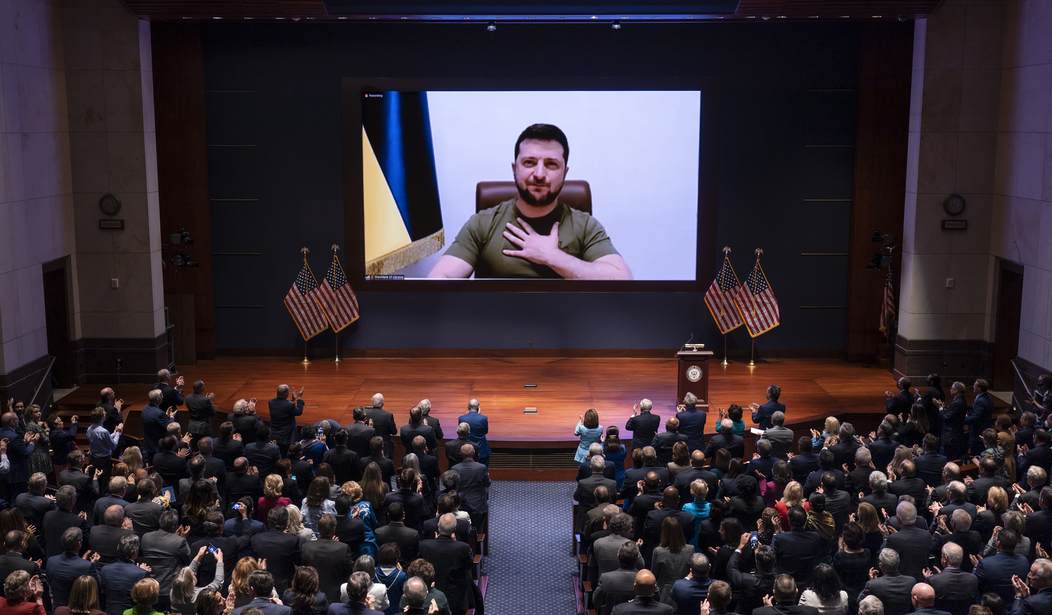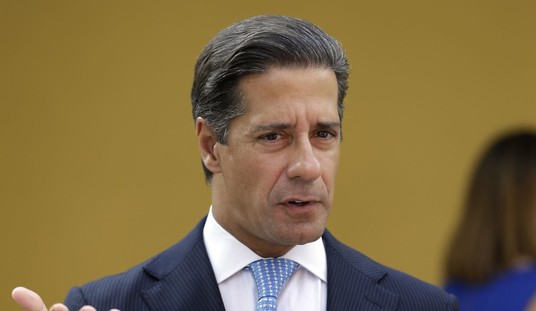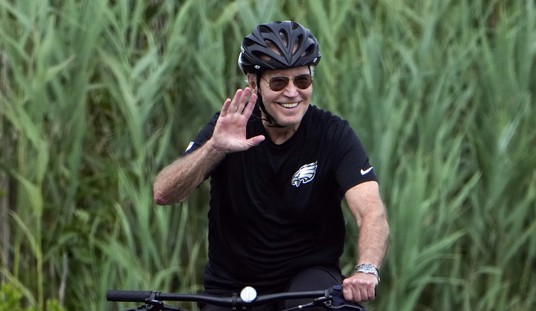Throughout the war in Ukraine thus far, we’ve seen plenty of scenes of horror, destruction, and violence. But we’ve also seen something else. Ukrainian President Volodymyr Zelensky has been delivering nightly addresses to his nation, broadcast across the internet on various social media platforms. In addition to those broadcasts, he makes almost daily addresses in the same fashion to world leaders, the United Nations, and the American Congress. That’s not unusual for a politician, of course, but there’s simply something different about Zelensky. His video productions are always slick. One he prepared for Congress last month had skillfully blended images and a haunting musical score. When he speaks directly to the camera, he’s always right on cue, with almost flawless timing and impactful phrases. When he finishes speaking, he frequently receives standing ovations from his audience no matter how far away they are.
How does he do this? There are two things to remember. First, Zelensky wasn’t always a politician. Prior to that, he was a comedian and an actor. He was no stranger to the camera lens and he had already learned how to draw an audience in. Also, he doesn’t do all of this solo. He has a speechwriter who crafts much of the messaging and works on the video production. He’s 38 years old and his name is Dmytro Lytvyn. He’s featured in a profile at the Guardian this weekend, and he is at least part of the reason that Zelensky was able to transform himself into a global superhero virtually overnight.
On the information front, however, Ukraine has offered a masterclass in message. Zelenskiy’s speeches to his people, and his addresses to foreign parliaments around the world, have galvanised international support and shored up morale at home. They have been gripping viewing, an unvarnished real-time video blog from Europe’s bloody frontline.
The writer of them is a 38-year-old former journalist and political analyst with fewer than 200 followers on Twitter. In an interview conducted via WhatsApp, Dmytro Lytvyn told the Observer the ideas behind the speeches were Zelenskiy’s: “The president always knows what he wants to say, and how he wants to say it.”
He added: “In the speeches, emotions are most important. And of course the president is author of emotions and the logic of the words.” Other world leaders “might learn how to do it”. In other words they might emulate Zelenskiy’s punchy combination of frankness and emotional power.
Lytvyn does what any good speechwriter would do and shies away from taking any credit. He insists that his boss is the originator of all of the ideas and his emotion is very genuine. Lytvyn just “cleans up” the language a bit.
Perhaps that’s largely true. Who knows? But it certainly sounds like he has plenty of experience with scripts himself. The two make for a powerful duo when you’re trying to influence the leaders of other nations and the citizens of almost the entire world.
I don’t say any of this to take anything away from Zelensky. He’s doing what he has to do during a crisis more difficult than almost any other leader will ever face. (If they’re lucky.) He knew his nation was in danger of being crushed by Russia’s military if they didn’t receive massive amounts of help. Their president set out to get them that help and he’s been spectacularly successful in doing so. In fact, Zelenski’s primary talent seems to have been making the entire planet feel guilty if they didn’t immediately reach out with all the aid Ukraine could make use of. And the world came rushing to his door.
I frequently have to remind myself that it was only six months earlier when Zelensky’s image was far different. For the average person on the street in other places, including America, there were plenty of people who couldn’t have pointed out Ukraine on a map and they wouldn’t have recognized his name. For those who follow foreign policy and had heard of him, the image frequently wasn’t very heroic. He was a president elected amid a controversial public debate. His administration was believed to be rife with corruption, and not just involving Hunter Biden’s deals. (That’s one of the primary reasons NATO had never taken Ukraine’s ideas about joining very seriously.) He attempted to have his primary political opponent thrown in prison. The list goes on.
But the invasion changed all of that. It launched Zelensky into the next phase of his career. He was back on camera and in front of a massive, captive audience. He put his various skills to the best use possible, bringing that audience to their feet with his daily missives. And in doing so, he turned himself into an international superhero, standing up defiantly in the face of the evil villain character in the form of the Madman of Moscow. His global audience ate it all up with a spoon. Zelensky was the hero we needed, if perhaps not the hero we deserved. But it’s worth keeping in mind as we watch this fairy tale unfold that the hero sometimes loses in the real world. And heroes can still have very human flaws. Just a bit of food for thought over Easter weekend. I’ll be back on Monday. Thanks for reading.








